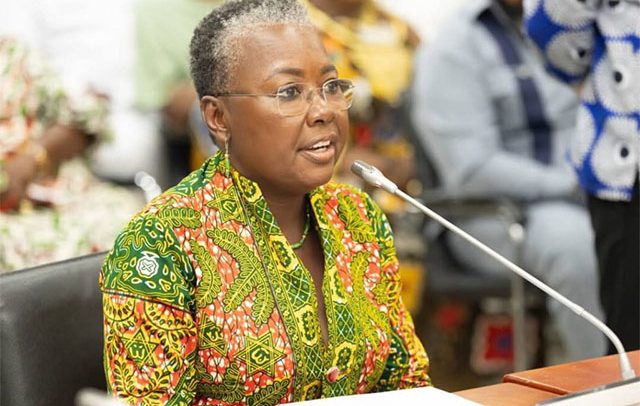Emelia Arthur
Parliament has passed the Fisheries and Aquaculture Bill, 2025 under a certificate of urgency, which will pave the way for sweeping reforms in the fisheries sector aimed at sustainable resource management, environmental protection, and greater alignment with international obligations.
The newly passed bill seeks to consolidate and modernise the country’s legal framework on fisheries and aquaculture, replacing the Fisheries Act, 2002 (Act 625), which, despite previous amendments, was deemed outdated and inadequate in addressing contemporary challenges facing the sector.
The bill also repeals related legislative instruments and seeks to bridge gaps identified in reviews conducted by the World Bank and the Food and Agriculture Organisation (FAO) in 2015 and 2019 respectively.
In a memorandum, the government said the bill underscored the importance of fisheries and aquaculture to the country’s socio-economic development, citing its contributions to job creation, poverty alleviation, GDP growth, and foreign exchange earnings.
The sector minister, Emelia Arthur stated during the introduction of the bill that the sustainable management of these resources is crucial to ensuring long-term ecological and economic resilience.
To that end, she said the bill establishes the Fisheries Commission as the main regulatory body responsible for the long-term conservation, development, management, and utilisation of fisheries and aquaculture resources.
The Commission is tasked with implementing national and international fisheries agreements, preparing sustainable development plans, preventing overfishing, promoting post-harvest management, and supporting small-scale fisheries through research, cooperation and co-management strategies.
Significantly, the bill introduces extraterritorial jurisdiction, applying its provisions not only within Ghanaian waters but also to Ghanaian fishing vessels and persons engaged in fishing-related activities beyond the country’s maritime boundaries, provided these do not conflict with the jurisdiction of other states.
The government said this move aligns with the country’s commitments under international agreements, such as the Port State Measures Agreement, to combat Illegal, Unreported and Unregulated (IUU) fishing.
The Commission, as outlined in clauses 2 to 4, will also be responsible for promoting environmental cooperation with institutions like the Environmental Protection Agency (EPA) and the Water Resources Commission, especially on issues impacting aquatic ecosystems and food chains.
A fifteen-member Board will serve as the governing body of the Commission, as provided under clause 5. The Board includes representatives from key agencies such as the Ghana Maritime Authority, the Navy, the Ghana Police Service, the EPA, and the Ghana Ports and Harbours Authority. It will also include experts in inland and industrial fisheries, aquaculture, fish processing and gender. The President will appoint members in line with Article 70 of the Constitution.
The Board will oversee the strategic direction of the Commission, ensure efficient resource management, and support the development of key sectoral policies.
One of the key innovations in the bill is the Fisheries Settlement Committee, established under clause 12, to handle complaints related to the fishing industry. However, the Committee is restricted from adjudicating violations of the Act or its regulations. In addition, clause 13 empowers the Board to establish co-management committees, such as the Scientific and Management Committee, to facilitate participatory governance in the sector.
By Ernest Kofi Adu, Parliament House


